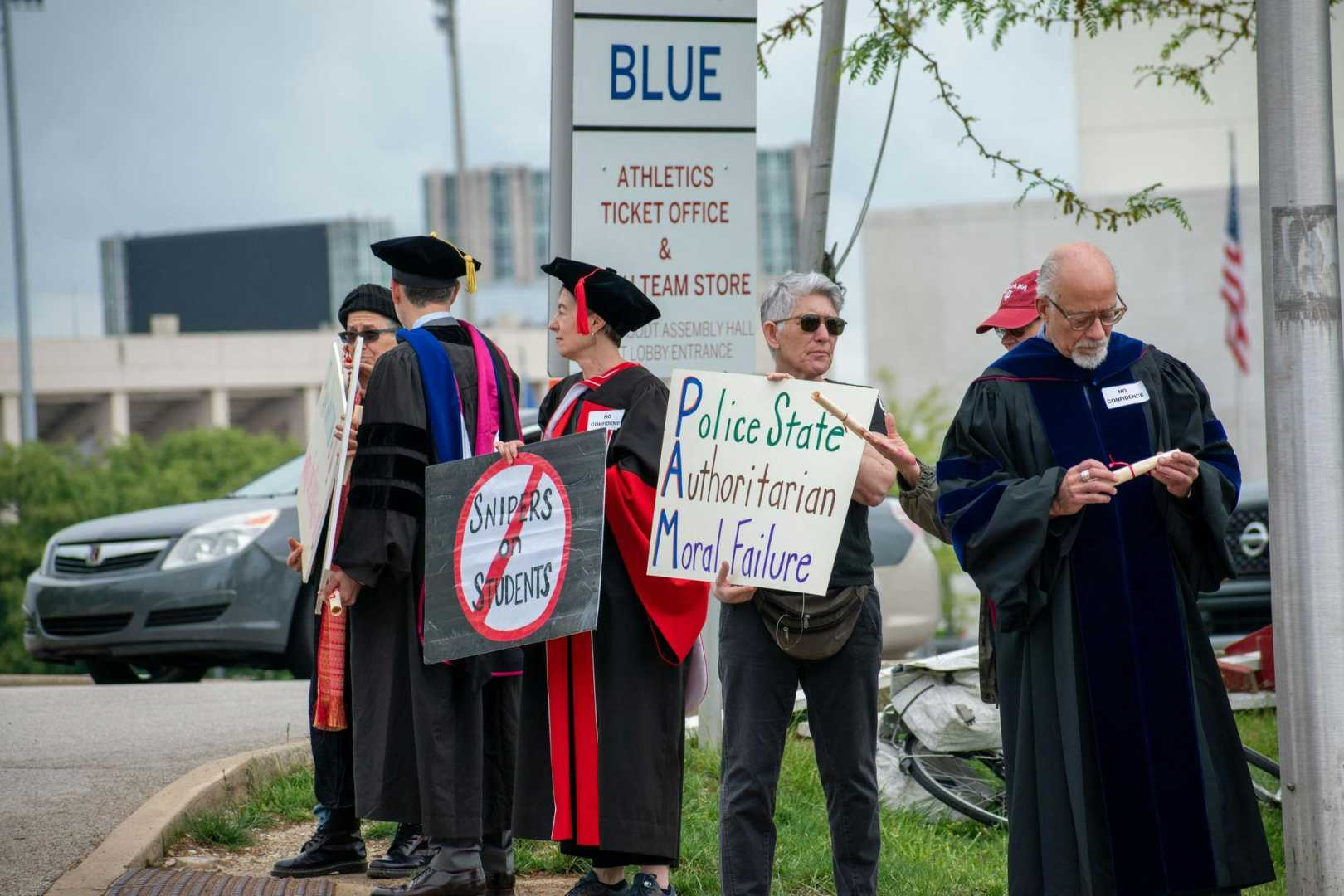Education
Indiana University Leads Defense Pact Amid Trump’s Diversity Critique

BLOOMINGTON, Ind. — Indiana University’s Bloomington faculty council is spearheading a resolution to form a defense pact among 18 universities within the Big Ten academic alliance, amid growing concerns about political pressures threatening academic freedom. This initiative follows escalating actions by governmental bodies that faculty members argue jeopardize the core tenets of higher education.
The resolution, approved this month, underscores the faculty’s commitment to safeguarding the autonomy of universities and the integrity of scholarly research. It specifically cites recent politically driven actions that pose significant risks to these foundational principles.
Provost Scott Strobel of Indiana University emphasized, “The preservation of one institution’s integrity is the concern of all. An infringement against one member university of the Big Ten shall be regarded as an infringement against all.” This resolution emerges against the backdrop of a broader critique of the Trump administration’s approach to diversity, equity, and inclusion, which has sparked significant debate among academic leaders.
The Big Ten academic alliance includes institutions such as the University of Illinois, University of Iowa, and Northwestern University, among others. This collective effort will require leaders from these universities to convene a summit to discuss the pact’s implementation, including the establishment of a shared defense fund to support any institution facing political or legal challenges.
This collective maneuver coincides with heightened scrutiny from federal agencies, exemplified by the recent raid on the home of Xiaofeng Wang, a professor at Indiana University for 20 years. Though Wang has not been charged with any offenses, he was unexpectedly terminated via email on the same day as the raid, resulting in backlash from faculty members and organizations, including the American Association of University Professors.
“The mere fact of an investigation cannot justify failure to comply with university policies,” stated a representative from the Bloomington chapter of the AAUP. Faculty members assert that individuals must be presumed innocent until proven guilty, highlighting concerns over due process.
In light of these developments, Indiana University’s move to create a pact reflects an urgent response to perceived threats against academic freedom. If the pact materializes, universities would commit to providing immediate support through a designated fund aimed at defense initiatives.
The context of this resolution is layered with political tension, particularly as former President Donald Trump has scrutinized numerous universities for their purported incapacity to handle antisemitism and civil rights violations. In recent months, he has directed his criticism towards educational institutions, intensifying pressures that some believe undermine free speech on campuses.
As Indiana University and its partners prepare to pursue this academic pact, the national conversation surrounding academic freedom, diversity, and the role of public institutions continues to evolve. Underlining these discussions is the understanding that collective action may serve as a pivotal safeguard against increasingly politicized interference in higher education.
As discussions progress, university leaders and faculty across the Big Ten remain vigilant, recognizing that the strength of their alliance may largely dictate the efficacy of their resistance to external pressures.












